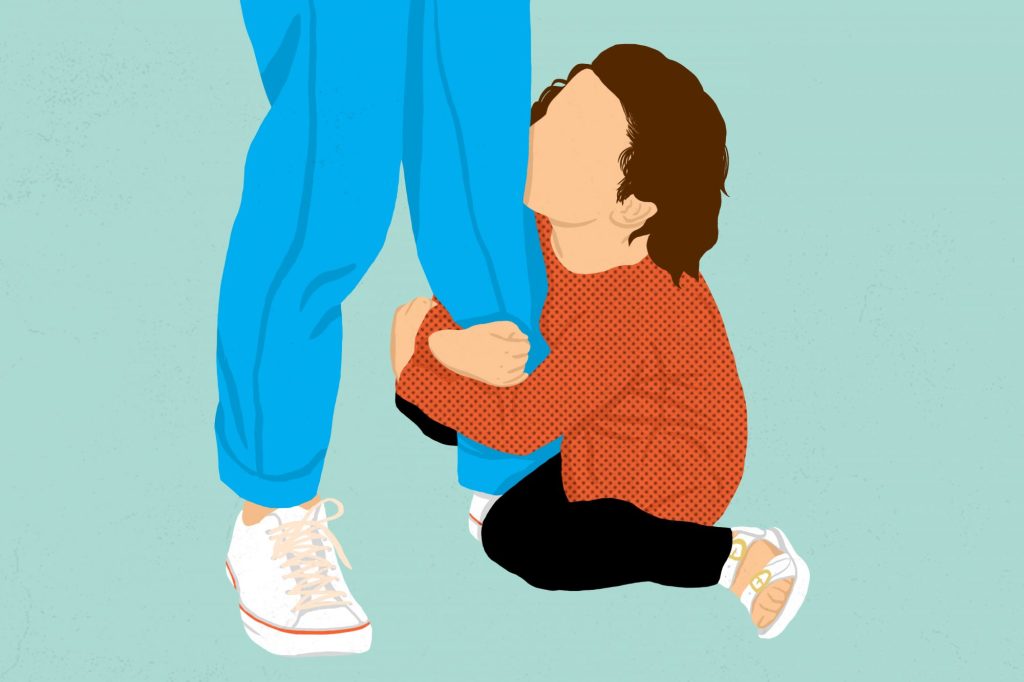Separation anxiety is one of the most common types of anxiety that people experience. It’s also among the most debilitating because it generally involves a fear of being separated from someone you love and who usually cares for you. Whether this person is your spouse, child, parent, or other loved one, separation anxiety can be difficult to handle on your own. This blog post will explore what separation anxiety is and how to treat it (how to deal with separation anxiety) so that you can get back to living life worry-free!
Contents
- 1 Understanding Separation Anxiety
- 1.1 Separation Anxiety Disorder
- 1.2 Separation Anxiety Vs. Separation Anxiety Disorder
- 1.3 Types of Separation Anxiety Disorder
- 1.4 Degrees of Separation Anxiety Disorder
- 1.5 Symptoms of Separation Anxiety Disorder
- 1.6 Common Causes of Separation Anxiety Disorder
- 1.7 Ill-effects of Separation Anxiety On Life
- 2 Coping With Separation Anxiety Disorder
- 3 Treatment For Separation Anxiety Disorder
- 4 Experts Comments On separation Anxiety Disorder
- 5 Conclusion
- 6 A Word From Therapy Mantra
Understanding Separation Anxiety
Separation anxiety is the fear of being separated from a loved one. It can be accompanied by a range of symptoms, including but not limited to:
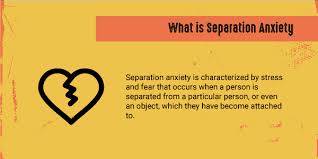
- Heart palpitations or accelerated heart rate
- Chest pain or tightness
- Shortness of breath
- Nausea
- Dizziness
- Chills or hot flushes
- Trembling or shaking
Separation Anxiety Disorder
A separation anxiety disorder is diagnosed when a person experiences significant distress because of an irrational fear of being apart from someone who provides them with love and support.
This can be their parent, spouse/partner, child, friend, etc. The fear is often out of proportion to the actual risk, and it can lead a person to avoid situations that involve being separated from their loved one.
If you’re experiencing symptoms such as those listed above, then your fear may be classified as a separation anxiety disorder – an intense and sometimes debilitating condition.
Separation Anxiety Vs. Separation Anxiety Disorder
The main difference between separation anxiety and separation anxiety disorder is that the latter involves significant distress or impairment in daily life.
- With separation anxiety, you may simply feel anxious or uneasy when separated from your loved one.
- But with a disorder, these feelings can be so intense that they disrupt your ability to function normally.
Types of Separation Anxiety Disorder
There are three types of separation anxiety disorder, which are determined by the age of onset:
According To Age Groups
Separation Anxiety Disorder In Children
This type of SAD typically develops before the age of 18 and is characterized by excessive fear or worry about being away from a parent or other loved one.
Separation Anxiety Disorder In Adults
This type of SAD typically develops between late adolescence and mid-30s. It is characterized by fear or worries about being separated from a spouse, partner, child, parent, friend, etc.
Separation Anxiety Disorder In Adolescents And Adults
This type of separation anxiety disorder can develop at any point in life after the first two have already been diagnosed. People who experience this type of SAD often struggle to maintain a healthy romantic relationship because they are constantly afraid that their partner will abandon them, even if the person is extremely committed and dedicated to maintaining the relationship.
According To Their Nature
There are three main types of separation anxiety disorder:
Specific Separation Anxiety Disorder
This type is focused on a particular person, such as a parent or spouse. The fear usually revolves around the idea of being separated from this individual and not having them there to care for you.
Generalized Separation Anxiety Disorder
This type is not focused on any particular person. The fear is more generalized and encompasses a range of situations in which you might be separated from your loved one.
Social Phobia-Related Separation Anxiety Disorder
This type is associated with a fear of socializing or being in public places. It often manifests as a fear of attending social functions, going to school or work, and speaking in public.
Degrees of Separation Anxiety Disorder
In general, there are two degrees or levels of separation anxiety disorder:
Mild Separation Anxiety Disorder
This is the most common type of SAD, and it involves milder symptoms such as uneasiness or anxiety when separated from a loved one. While these symptoms can be disruptive, they do not usually interfere with your ability to function in daily life.
Severe Separation Anxiety Disorder
This type of SAD is less common, but it involves more severe symptoms such as intense fear or panic when separated from a loved one. These symptoms can significantly disrupt your ability to function in daily life, making it difficult to go to school or work, socialize, or take care of yourself.
NOTE: There is no formal process for diagnosing a person with SAD – it’s more about ruling out other causes first. If your symptoms match those listed above, then you may be diagnosed with the condition even if your fear isn’t as severe or out of control. However, the severity is one of the key determinants of whether you should receive professional treatment for SAD.
Symptoms of Separation Anxiety Disorder

In addition to those listed above, some other common signs and symptoms include:
- Extreme distress at the thought of going through a separation from a loved one
- Overwhelming worry that something bad will happen to you or your loved ones when you’re not together
- Fear of being alone and/or fear that other people can’t take care of themselves without you
- Inability to be away from your loved one for even short periods, such as at work or school
- Inability to function in social settings, such as going out with friends
- Trouble sleeping and eating without your loved one present
- Irritability or anger when separated from a loved one for even short periods
Common Causes of Separation Anxiety Disorder
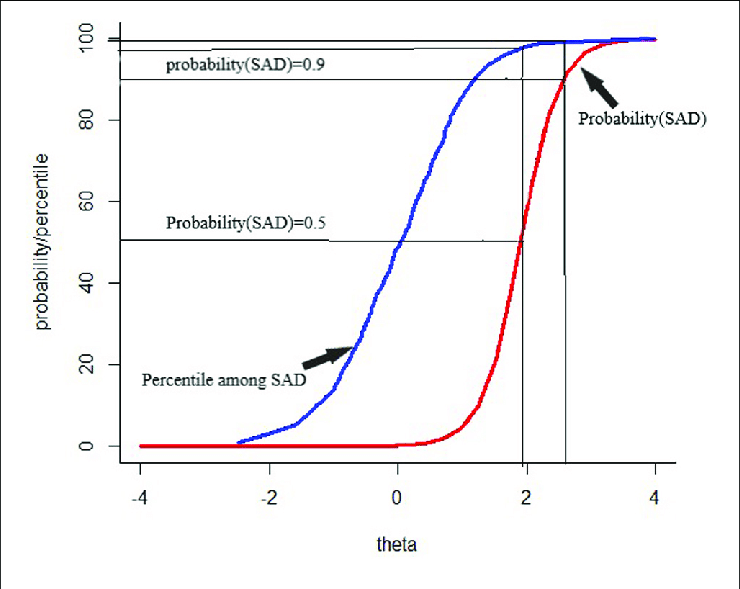
No known cause applies to everyone who experiences this type of SAD. However, some possible causes include:
- Experiencing a traumatic event, such as the death of a loved one or going through abandonment or separation from a caregiver during childhood
- Having a parent who suffers from separation anxiety disorder
- Having an anxious temperament and being more prone to experiencing fear or anxiety in general
Ill-effects of Separation Anxiety On Life
Separation anxiety disorder can lead to difficulties with:
- Going to work or school and getting things done if you’re not able to be separated from a loved one for even short periods. This may cause problems in your career, education, and finances if it prevents you from being productive at work/school or completing important tasks.
- Socializing with friends and family, as well as participating in other activities you enjoy. This can leave you feeling isolated and alone, which can lead to depression and further problems.
- Take care of yourself both physically and emotionally. If you’re not able to do things like eat or sleep without your loved one present, this can lead to health problems. And if you’re always under stress and anxiety, it can take a toll on your mental health.
Coping With Separation Anxiety Disorder
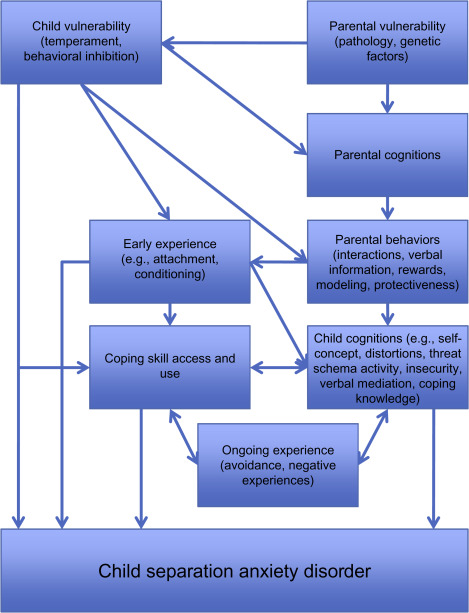
If you’re experiencing mild separation anxiety, there are a few things you can do to help ease your symptoms:
Talk to someone about your feelings
It can be helpful to talk to a friend or family member who understands what you’re going through and can offer support.
Stay connected to loved ones
Make sure to stay in touch with your loved ones during times when you’re apart, whether that means texting, calling or video chatting.
Take care of yourself
Make sure to get enough sleep and eat a balanced diet. Taking some time for self-care can help reduce stress and anxiety.
Engage in calming activities
Try yoga, meditation, or deep breathing exercises to help soothe your mind and body.
Tips For Children With a Separation Anxiety Disorder
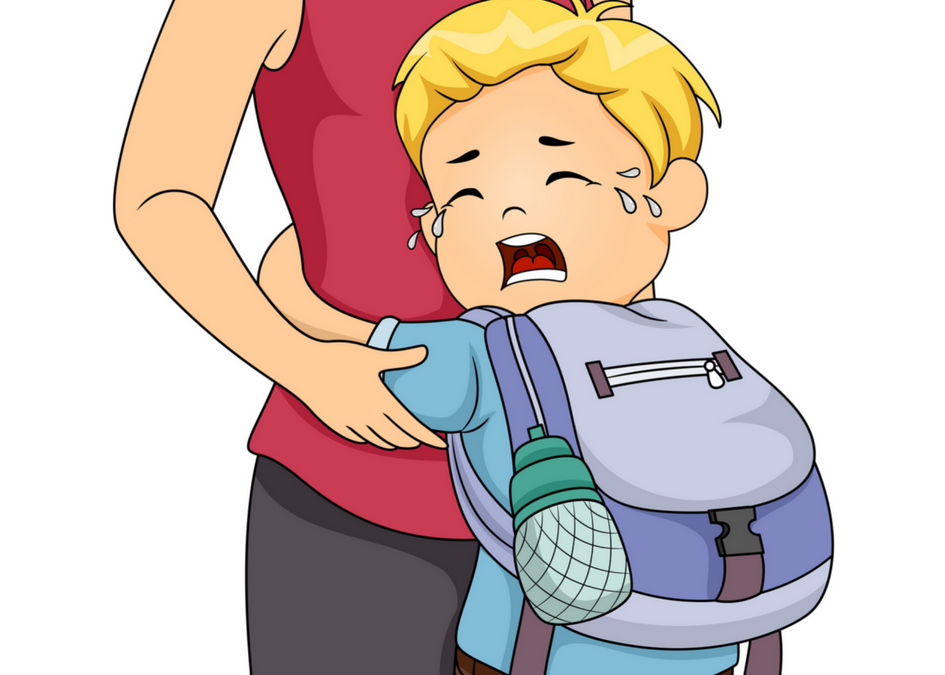
If you’re the parent of a child who is experiencing separation anxiety, there are a few things you can do to help:
- Talk to your child about their fears. Help them understand what is causing their anxiety and why it’s happening. This can help them feel more secure and less afraid.
- Encourage your child to talk about their fears or concerns with someone they trust, such as a relative, friend, teacher, or counselor. This can help build coping skills and get support from others who understand what they’re going through.
- Create a plan for dealing with separation. This could involve gradually increasing the amount of time you spend apart, practicing leaving your child at daycare or school, or having them stay with a trusted family member or friend.
- Make sure your child gets plenty of exercise and quality sleep. It’s also important to provide them with a healthy diet and plenty of positive reinforcement.
- Stay positive and reassuring when talking to your child about separation. Don’t criticize them or make them feel like they’re doing something wrong.
Common Tips For Easing Separation Anxiety Disorder
There are many ways that you can deal with separation anxiety, both big and small. By learning how to cope, you’ll be able to deal with your anxiety and move forward. However, some common tips that may help include:
Mock drill
Making a plan before separating from a loved one – think about what will happen when you’re apart and how you will communicate
- Staying connected to loved ones during times of separation through communication tools like texting, calling, or video chatting
- Talking to or writing in a journal about the things you’re feeling and experiencing, can help ease your mind
Cope better
Developing coping skills through therapy, such as:
- Deep breathing exercises
- Practicing positive self-talk
They will help you learn how to stay calm when confronted with situations that trigger feelings of separation anxiety.
Self-care techniques
Creating a routine and sticking to it as much as possible:
- Eating healthy foods and getting enough exercise
- Avoiding caffeine, alcohol, and other stimulants before bedtime
- Practicing relaxation techniques such as deep breathing, yoga, or meditation
Seek help
Find a support group or therapist who can help you deal with your anxiety. Or seek professional help if your anxiety is causing significant distress or impacting your ability to live a normal life.
When It’s Time For Professional Help
If your separation anxiety is causing you significant distress or preventing you from functioning normally in everyday life, it’s important to seek professional help. A mental health therapist can provide you with the tools and support you need to overcome your disorder. Treatment for separation anxiety disorder in children may also involve therapy, as well as medication if needed.
Treatment For Separation Anxiety Disorder
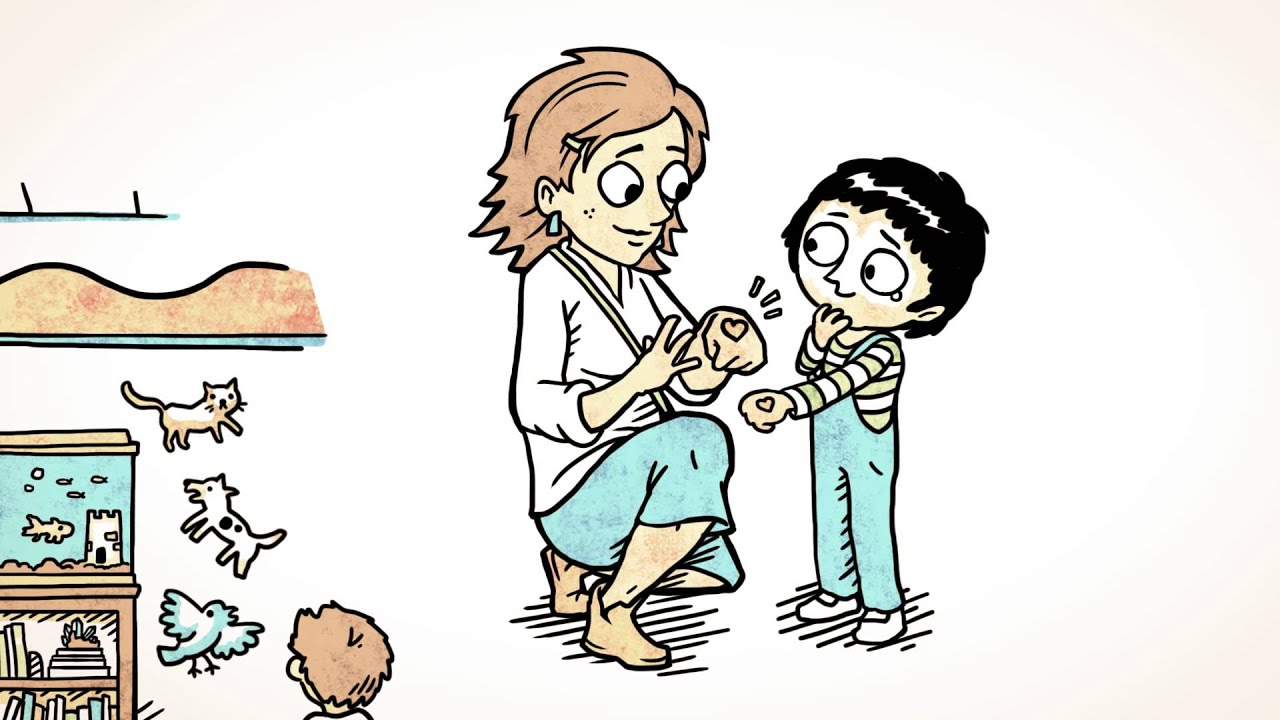
There are many different types of treatment available for separation anxiety disorder. Treatment options will vary depending on the severity of your symptoms and how much they’re impacting your life. Some common treatment approaches include:
Therapy
Cognitive-behavioral therapy (CBT) is often effective to treat separation anxiety disorder. This type of therapy helps you identify and replace negative thoughts with more positive ones – this can help ease anxious feelings. You’ll also learn how to challenge or face your fears instead of avoiding them, which is a common strategy for people with separation anxiety disorder.
Medication
If therapy doesn’t work or isn’t an option for you, medication may be the next treatment option to help ease your symptoms. Antidepressants are effective to treat separation anxiety disorder, as they can help improve your mood and decrease feelings of anxiety.
Education
If you or your child is struggling with separation anxiety disorder, it’s important to read and be aware of the condition. This will help you understand what you’re dealing with and how to best treat it. There are many helpful books and articles available on the subject, as well as support groups for people living with separation anxiety disorder.
Coping Tools
Don’t forget to take care of yourself while you’re caring for a child with separation anxiety disorder. Make sure you get plenty of sleep and exercise and try to eat healthy foods. Avoid caffeine, alcohol, and other stimulants before bedtime. Practicing relaxation techniques such as deep breathing, yoga, or meditation can also help you calm down when you’re feeling anxious.
NOTE: If your separation anxiety is causing you significant distress or preventing you from functioning normally in everyday life, it’s important to seek professional help. A mental health therapist can provide you with the tools and support you need to overcome your disorder. Treatment for separation anxiety disorder in children may also involve therapy, as well as medication if needed.
Experts Comments On separation Anxiety Disorder
“Separation anxiety disorder is a condition in which a person experiences excessive fear or anxiety when separated from loved ones or from places where they feel safe. People with separation anxiety disorder often have intrusive thoughts and images about being away from those they love.” – Anxiety and Depression Association of America
“People with a separation anxiety disorder may worry excessively about losing a loved one or may worry about bad things happening to them when they are separated from people to whom they feel close. They may be afraid of being alone because if they were away from familiar faces and places for too long, something terrible might happen.” – National Institute of Mental Health
Case Study
Sarah is a 12-year-old girl who has been struggling with a separation anxiety disorder for the past two years. She experiences intense fear and anxiety when she’s away from her parents to the point where it interferes with her daily life. Sarah often has trouble sleeping and experiences stomachaches and headaches as a result of her anxiety. She’s been attending weekly therapy sessions for the past six months and has seen a significant improvement in both her mood and symptoms as a result. Sarah continues to work with her therapist on ways to cope with these feelings when she does experience them outside of scheduled appointments.
NOTE: If you or your child is struggling with separation anxiety disorder, it’s important to educate yourself about the condition. This will help you understand what you’re dealing with and how to best treat it. There are many helpful books and articles available on the subject, as well as support groups for people living with separation anxiety disorder.
Conclusion
Remember that separation anxiety disorder is a very common condition and the majority of people do overcome it. If you need help, don’t be afraid or embarrassed to reach out for support from loved ones or mental health professionals.
A Word From Therapy Mantra
Your mental health — Your psychological, emotional, and social well-being — has an impact on every aspect of your life. Positive mental health essentially allows you to effectively deal with life’s everyday challenges.
At TherapyMantra, we have a team of therapists who provide affordable online therapy to assist you with issues such as depression, anxiety, stress, workplace Issues, addiction, relationship, OCD, LGBTQ, and PTSD. You can book a free therapy or download our free Android or iOS app.
